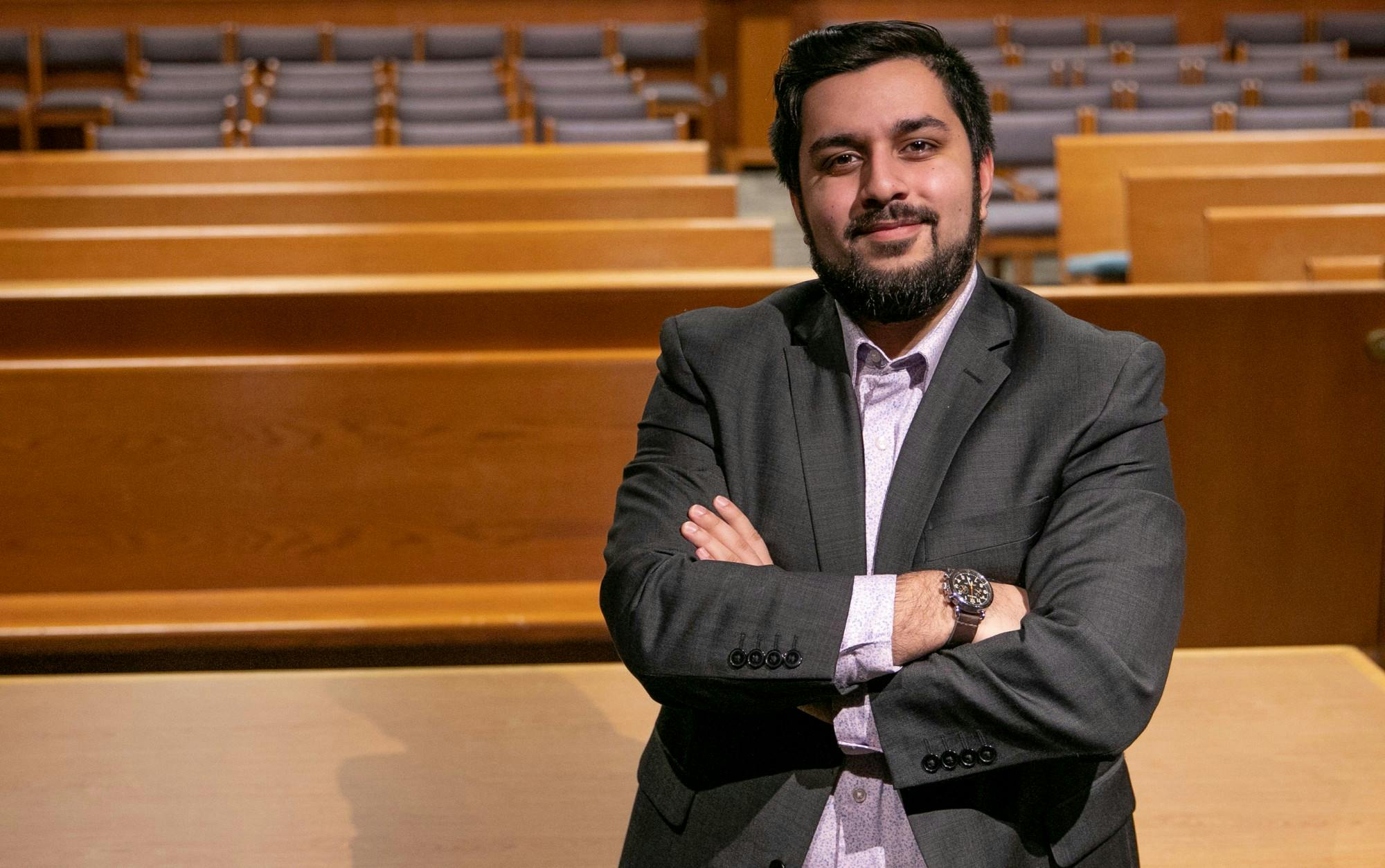Aaron Stephens was answering questions from the press after voting to pass an ordinance making conversion therapy illegal in East Lansing. Suddenly, he was interrupted by a woman saying the ordinance was illegal.
Her claims weren’t without substance. Fears that the ordinance restricted speech and religious freedom nearly halted its passage. While all five East Lansing City Council members condemned conversion therapy, possible lawsuits were a main reason two voted against it.
Stephens wasn’t phased.
He politely acknowledged the woman and went back to answering questions.
“Either way this is a really good thing,” Stephens said. “We need to protect people within our city that are part of the LGBTQIA community.”
It was a poised moment from East Lansing’s youngest council member. It showed where Stephens' priorities fell as a legislator: Protecting the people.
“He just brings so much enthusiasm and passion for doing the right thing,” said Shanna Draheim, who served for two years on City Council with Stephens.
Stephens announced his decision to run for council as a 20-year-old junior at Michigan State. He said he saw things that needed change and wanted to make a difference. Additionally, he thought a young person’s perspective was important in a city primarily made up of students.
“I can’t listen to somebody’s issue and not try to figure out ways that I can help,” Stephens said.
Stephens said he started his campaign in May, six months before the election, so he could talk to as many people as possible. He wanted to understand the issues facing everyone in East Lansing, not just the students.
“I didn’t try to be just the student running for council,” Stephens said.
Stephens said he didn’t lose that passion of learning from the community after he was elected. When he heard of students having problems with a new apartment complex, The Hub, he went to the building to talk to tenants and reached out to others through Facebook, trying to pinpoint what needed to be fixed.
“Every single person in the world has something to teach you,” Stephens said.
Stephens said he is used to being caught in the middle of political debates. He grew up with a Republican father and Democratic mother who who would often have passionate conversations about issues. They’d often look to Stephens as the tiebreaker.
“They’d look at me and they’d say, ‘Aaron, what do you think?’” Stephens said. ”I’d be like, ‘Mom, dad, I’m 11. I have no idea.’”
As a result, Stephens was informed on issues at a young age.
At an age where most kids' biggest worry was their algebra one grade, Stephens said he was working with groups in his hometown, Rochester Hills, to spread suicide and drug abuse awareness.
Stephens remains firm in his belief that young people need to be involved.
“It’s our future to lose,” he said.
After two years serving on council, Stephens said he doesn’t have career plans yet.
Support student media!
Please consider donating to The State News and help fund the future of journalism.
“My goal is to help people,” he said. “Whether that’s in elected office or that’s supporting another candidate, or whether that’s just doing good work in the community, that’s what I want to be doing.”
While Stephens doesn’t know the next step for him, those familiar with his work don’t see limits to what he can do. This was evident in November when the council voted him to be mayor pro tem at just 23 years old.
“I don’t think that there’s a ceiling,” said Sarah Anthony, the representative for Michigan’s 68th district. “I think that he is young enough and innovative enough to have multiple paths.”
Anthony met Stephens at campaign events before he was on council. She said she’s impressed with his ability to translate ideas into legislation.
“There’s a significant difference between campaigning, and governing and he has been able to make that shift pretty seamlessly,” Anthony said.
Stephens said, down the road, when his career is over, he hopes to live in a nation with less discrimination and more communication on how to pass policy protecting the people.
“The conversation shouldn’t be whether or not somebody should have the right to accessible healthcare,” Stephens said. “The conversation should be 'how do we get that.'”
For now, Stephens said he is focused on the things in his control — and encouraging others to do the same.
“At the end of the day, all of us should be working towards the betterment of the community, of the country, of the world,” Stephens said.
Discussion
Share and discuss “Feature: Mayor Pro Tem Aaron Stephens” on social media.







